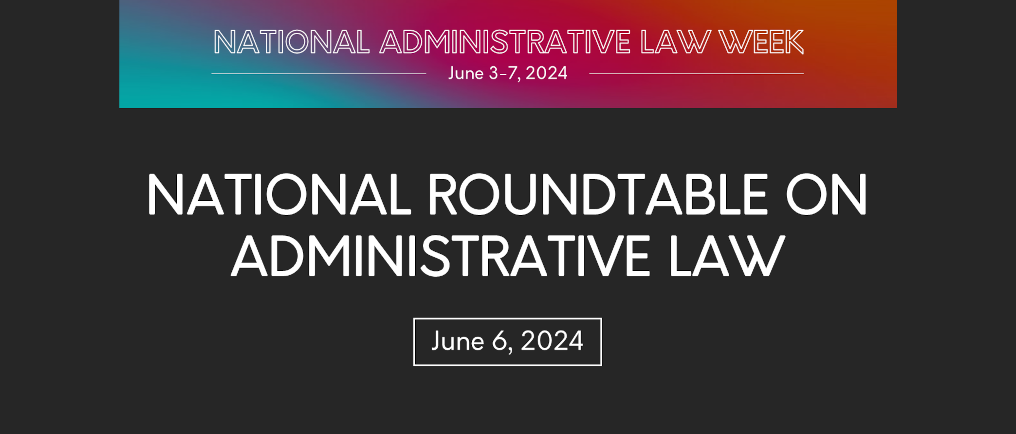National Roundtable on Administrative Law (2024 Edition): “Law, Policy and the Public interest”

OVERVIEW
Administrative agencies, Boards, and commissions (ABC) operate in the domain of public law, so have an overriding responsibility to act “in the public interest.” But what is this thing we call “the public interest?” Who is this public, and what are their “interests?” Is there a unified public or, as the SCC said in Berg, every service has its own public?
Should Boards, made up of experts and professionals in a particular field, presume to know the public’s interest, or should they seek out and entertain evidence of that interest? What should we do with the reality that most members of the public will not generally be organized or have the resources to participate on an equal footing with institutional participants. What responsibility do governments have to ensure that boards, tribunals, and commissions have the independence, resources and capacity to access, and properly assess this public interest?
For ABCs with regulatory and policy -making responsibilities, the public interest is even more important.
Regulatory decisions may have significant impacts that extend well beyond the parties to an application or appeals. They may cross geographical and jurisdictional boundaries. They can have significant direct or indirect impacts on social, economic, environmental, and other relations. The decisions can affect generations into the future. The task is polycentric. As the public appears to be increasingly uncertain about the capacity of our democratic institutions to address current important, even existential issues in an intelligible, coherent and non-partisan way, it falls to all of us to confront these conundrums.
This program is part of the second edition of the National Administrative Law Week*, organized jointly by CIAJ and the Council of Canadian Administrative Tribunals (CCAT).
Bilingual program with simultaneous interpretation.
Participation in this program is accredited in provinces where CLE requirements for lawyers are mandatory.
CO-CHAIRS
- Michael Gottheil, Accessibility Commissioner, Canadian Human Rights Commission
- Athanasios Hadjis, Vice-Chair, Canadian Human Rights Tribunal
NATIONAL ADMINISTRATIVE LAW WEEK REGISTRATION FEES
| Activities and participant type | In person Regular |
Online Regular |
| Package: CCAT Symposium & CIAJ Roundtable (Webinar + cocktail reception as added bonus) | ||
| CCAT or CIAJ Members | $1,000 | $1,100 |
| Non-members | $1,400 | $1,500 |
| CCAT Symposium only | June 5, 2024 | ||
| CCAT or CIAJ Members | $600 | $550 |
| Non-members | $800 | $750 |
| CIAJ Roundtable only | June 6, 2024 | ||
| CCAT or CIAJ Members | $600 | $550 |
| Non-members | $800 | $750 |
| Webinar only | June 7, 2024 | ||
| CCAT or CIAJ Members | $50 | |
| Non-members | $95 | |
| Students | $10 | |
| Cocktail reception only | June 5, 2024 |
||
| Participants at the CCAT Symposium & CIAJ Roundtable (whole package) | Gratuit | |
| Other participants | $50 | |
CONTACT
For further information, please contact the Project Manager of Multidisciplinary Programs, Mary Plagakis:
Tel.: 514-731-2855
Email: mary.plagakis@ciaj-icaj.ca
TERMS AND CONDITIONS
- Payment in full of the registration fee is due before the Event. Should a registrant have an outstanding balance, a credit card will be requested at the Event before the beginning of the program.
- Inability to attend may result in a registration being transferred to a colleague of the same organization up to 7 days before the Event. The request must be made in writing.
- Cancellation incurs processing fees as follows: $100 for cancellations 30 days or more before the event and 50% of the registration fee for cancellations 7 days or more before the event. No refund will be extended for cancellations made less than 7 days before the event.
